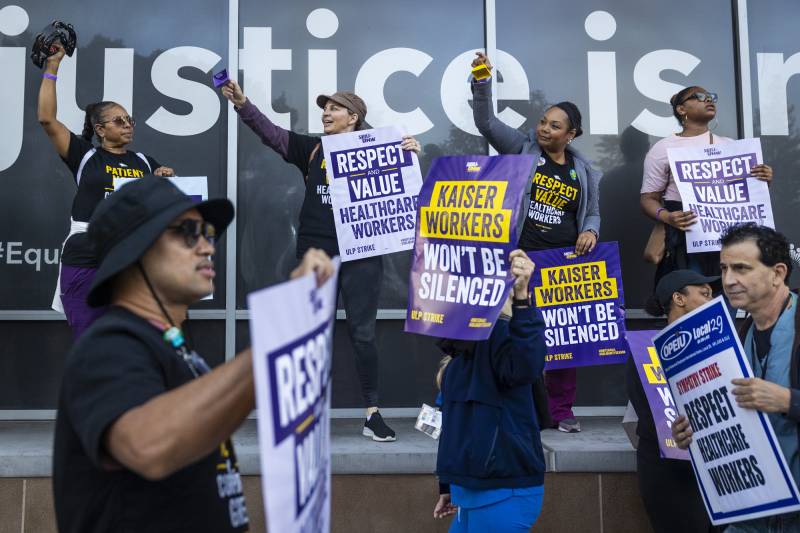A week after tens of thousands of Kaiser Permanente employees across the country staged a three-day walkout demanding higher wages and more robust staffing, the unions representing them warned on Tuesday of a longer strike early next month if upcoming negotiations with the company prove unsuccessful.
The next bargaining sessions are scheduled for later this week, with Julie Su, the acting U.S. secretary of labor, expected to mediate, according to the union coalition representing Kaiser employees. Anything short of a fair deal will result in a subsequent strike starting on Nov. 1 and lasting until Nov. 8, coalition representatives told KQED.
“If we don’t stand up for our work, they’re going to continue treating us the way they are treating us,” said Drenda Sims, a receptionist in the OB-GYN department at Kaiser’s Oakland facility.
